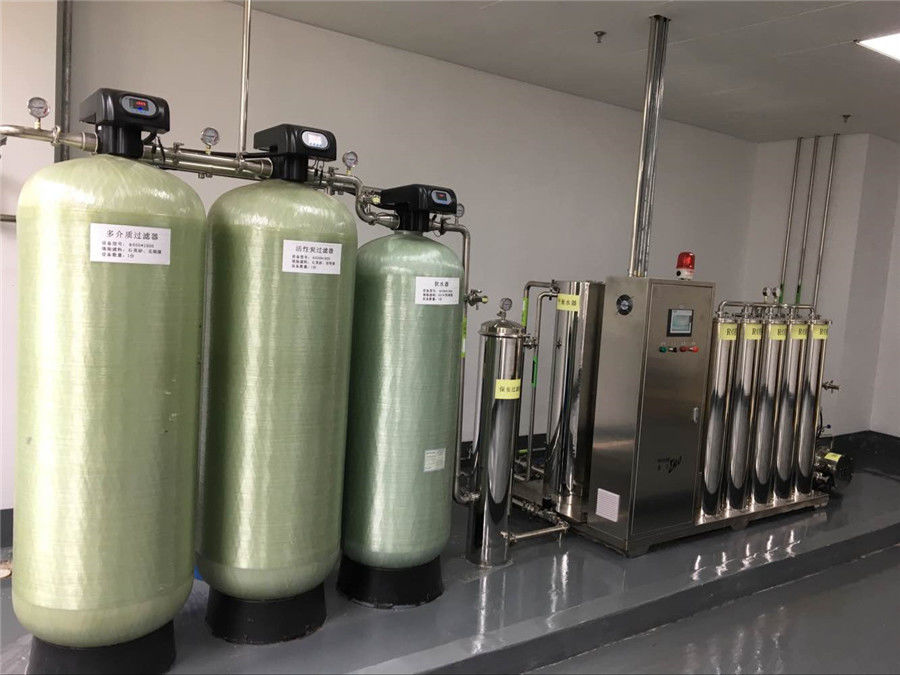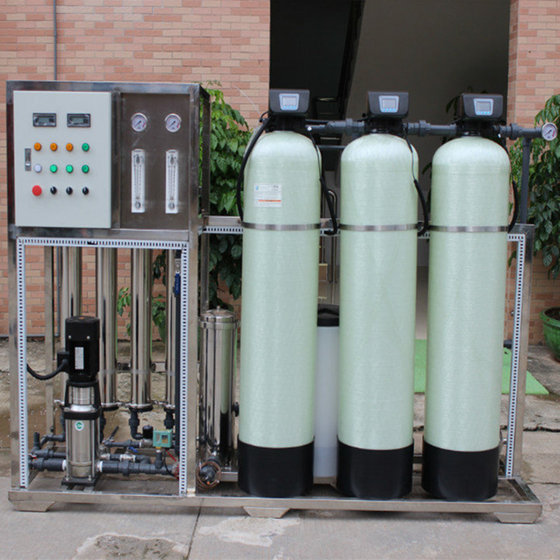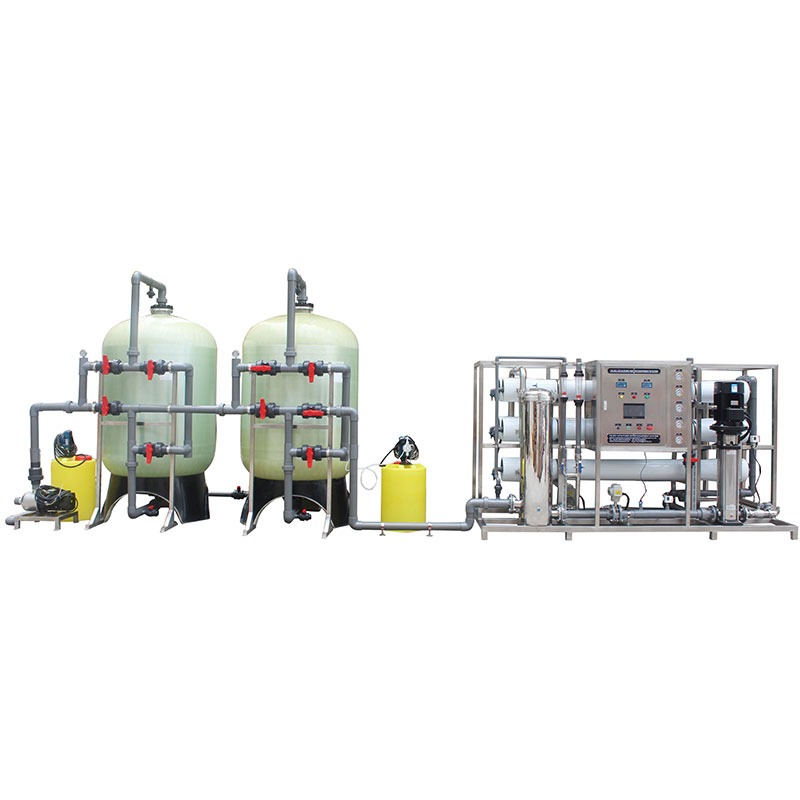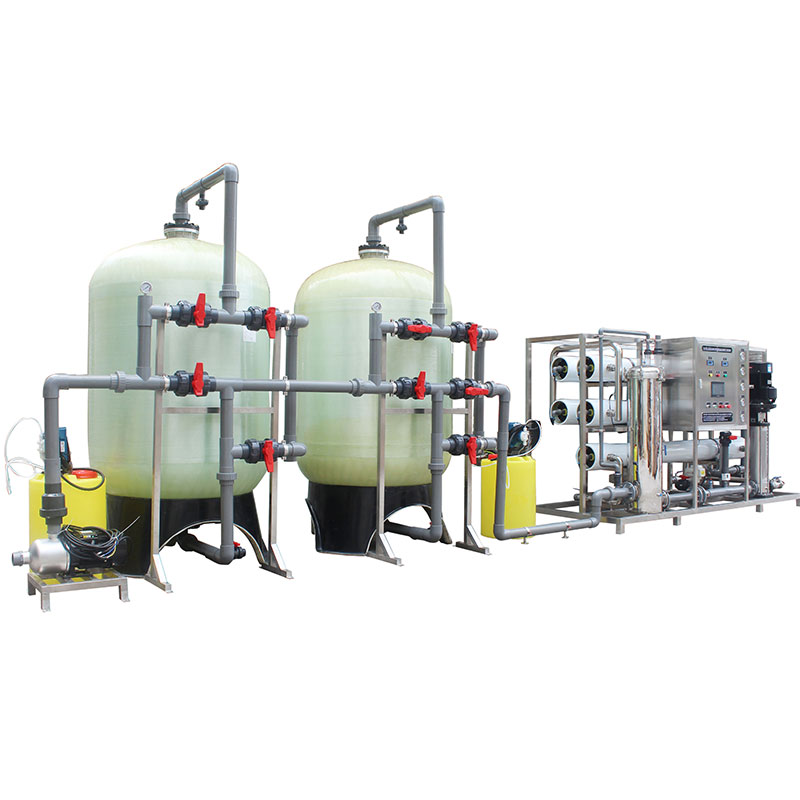How to disinfect the dialysis water purification system?
Disinfection of dialysis water purification system is one of the key steps to ensure the safety of water quality and the normal operation of the purification system. According to practice and recommendations, a series of measures and methods are required to disinfect the dialysis water purification system. Below we will introduce in detail how to disinfect the dialysis water purification system and ensure its efficient operation and water quality safety.
Periodic cleaning using acidic and alkaline cleaners
Dialysis water purification systems, especially RO (reverse osmosis) systems, require regular cleaning and disinfection using acidic and alkaline cleaners. These cleaners can effectively remove dirt and bacteria from inside the system, keeping the system clean and functioning properly. Regular cleaning and disinfection prevents the build-up of dirt and bacteria, reducing the occurrence of system failures and water quality issues.
Regular disinfection using peracetic acid
In addition to regular cleaning, the dialysis water purification system also requires regular disinfection. For RO systems and portable reverse osmosis systems, monthly disinfection with peracetic acid (such as Minncare) is recommended. Peracetic acid is an effective disinfectant that can kill bacteria and microorganisms in the system, ensuring water quality safety and system hygiene.
Use of thermal cycle disinfection function
For RO distribution loops with thermal disinfection capabilities, it is recommended to use a thermal cycle for disinfection every night. Thermal cycle disinfection is an efficient disinfection method that uses heating and circulating water to kill bacteria and microorganisms in the system. This method can ensure the sanitation and water quality safety of the system and reduce the occurrence of cross-infection and other health problems.

What is the importance of disinfection of dialysis water purification system?
Ensure patient safety
The safety of dialysis water quality is directly related to the effect of dialysis treatment and the health of patients. Regular disinfection of the dialysis water purification system can effectively kill bacteria and microorganisms in the system, reduce cross-infection and other health risks, and ensure patient safety.
Ensure the purity of dialysis water
The disinfection of the dialysis water purification system can effectively remove dirt and pollutants inside the system and maintain the purity and stability of the water quality. This is crucial to the success of dialysis treatment, ensuring that the dialysis water quality meets relevant standards and requirements, and avoiding water quality problems from affecting patients.
Prevent system failure and damage
Regular disinfection can prevent failure and damage of the dialysis water purification system and extend the service life of the system. By removing dirt and bacteria from inside the system, blockage and damage to the system can be reduced, keeping the system running normally and working efficiently.

When is the best time to disinfect the dialysis water purification system?
The optimal time for disinfection of the dialysis water purification system should be determined based on the usage and cycle of the system. Choosing the appropriate time for disinfection can ensure the healthy operation of the system and the safety of water quality.
First of all, the frequency and conditions of use of the dialysis water purification system need to be considered. Generally speaking, the dialysis water purification system will be in constant contact with water sources and patients during use and is easily contaminated by bacteria and contaminants, so it needs to be disinfected regularly. Depending on the type and requirements of the system, quarterly, monthly or even daily disinfection can be chosen to ensure the purity of the water and the healthy operation of the system.
Secondly, the usage time and cycle of the dialysis water purification system need to be considered. Choosing an appropriate time to disinfect before or after the peak period of system use can avoid affecting the normal operation of the system and the patient's dialysis treatment. At the same time, you can also choose to disinfect when the system is idle or at night to make full use of the system's idle time and ensure thorough and effective disinfection.

In addition to chemical disinfection, what other disinfection methods are there for dialysis water purification system?
UV disinfection
In addition to chemical disinfection, ultraviolet disinfection is a commonly used dialysis water purification system disinfection method. Ultraviolet disinfection uses ultraviolet light to kill bacteria and microorganisms in water, which can quickly and efficiently purify water quality and ensure the safety of dialysis water.
Ultrafiltration membrane disinfection
Ultrafiltration membrane disinfection is a method of filtering bacteria and microorganisms in water through ultrafiltration membrane, which can achieve rapid disinfection and purification of dialysis water. This method is suitable for some occasions that are sensitive to chemical disinfectants or have special requirements.
Ozone disinfection
Ozone disinfection is a method of killing bacteria and microorganisms in water through ozone gas oxidation. It can effectively remove organic matter and odors in water and keep the water clean and pure.

Disinfection of the dialysis water purification system is one of the key steps to ensure patient safety and treatment effectiveness. Through the regular use of chemical disinfectants, thermal cycles and other disinfection methods, bacteria and microorganisms in the system can be effectively killed and water quality kept safe and pure.
In addition to chemical disinfection, there are a variety of disinfection methods available, such as ultraviolet disinfection, ultrafiltration membrane disinfection and ozone disinfection, which can be reasonably selected and applied according to actual conditions and needs. Through scientific and effective disinfection methods, the safety and stability of dialysis water quality can be ensured, providing reliable protection for patients' health.




